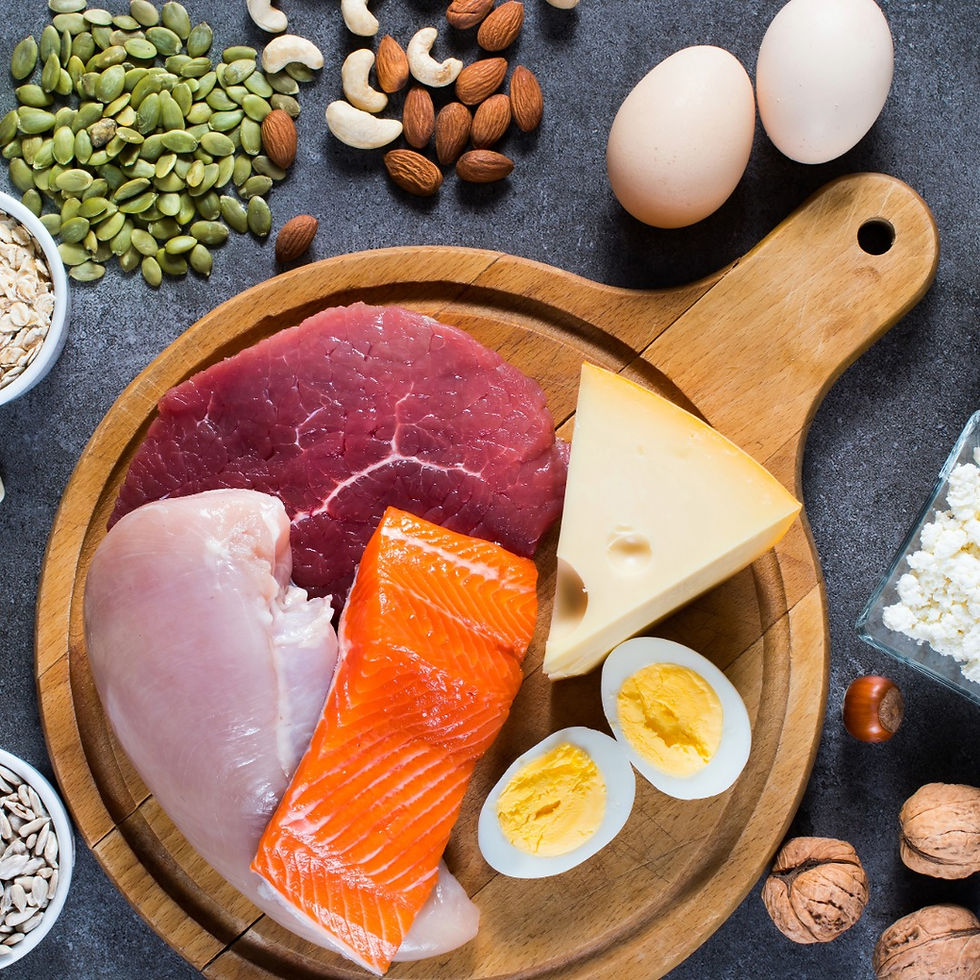Cryotherapy: Recovery Strategies
- packanimalfit
- Jun 20, 2023
- 3 min read
Matt Siekbert, owner of Pack Animal Fitness gym in Saint Petersburg, Florida, is often asked about effective recovery strategies for weightlifting and bodybuilding enthusiasts. With intense training sessions and the constant pursuit of pushing their limits, athletes in these disciplines are no strangers to muscle soreness and inflammation. In recent years, cryotherapy has gained significant attention as a potential solution for enhancing recovery. In this article, we will explore the role of cryotherapy in weightlifting and bodybuilding, its benefits, and the scientific evidence supporting its claims.
Cryotherapy, which involves exposing the body to extremely cold temperatures for a short period, has become a popular practice among athletes seeking faster recovery and enhanced performance. It is believed to reduce inflammation, alleviate muscle soreness, and accelerate the body's natural healing processes. Let's delve into the science behind these claims.
Reducing Inflammation:
Inflammation is a natural response of the body to injury or intense exercise. However, excessive or prolonged inflammation can impede the recovery process and hinder performance. Cryotherapy helps counteract this by constricting blood vessels and reducing blood flow to the affected areas. The cold temperatures cause vasoconstriction, minimizing the release of inflammatory mediators and reducing swelling. As a result, cryotherapy can aid in reducing inflammation and promoting faster recovery.
Alleviating Muscle Soreness:
Delayed onset muscle soreness (DOMS) is a common consequence of intense training. Cryotherapy can be an effective strategy to alleviate muscle soreness. The cold temperatures help numb the nerve endings, providing temporary relief from pain. Furthermore, cryotherapy may reduce the buildup of lactic acid, which contributes to muscle soreness. By decreasing lactic acid accumulation, athletes may experience less discomfort and recover more quickly between training sessions.
Speeding Up Recovery:
One of the key benefits of cryotherapy is its potential to speed up the recovery process. By exposing the body to extremely cold temperatures, cryotherapy stimulates the release of endorphins, the body's natural painkillers. These endorphins not only provide pain relief but also induce a feeling of relaxation and improved mood. Additionally, cryotherapy enhances blood circulation, promoting the delivery of oxygen and nutrients to the muscles, which aids in their repair and recovery.
Scientific Evidence:
While cryotherapy has gained popularity, it is essential to examine the scientific evidence supporting its claims. Numerous studies have investigated the effects of cryotherapy on recovery in athletes. For example, a study published in the Journal of Athletic Training demonstrated that whole-body cryotherapy significantly reduced muscle soreness and inflammation in elite rugby players. Another study conducted by the European Journal of Applied Physiology found that cryotherapy sessions led to improved muscle recovery and reduced oxidative stress markers in weightlifters. These findings, among others, suggest that cryotherapy can be an effective recovery strategy in weightlifting and bodybuilding.
Anecdotal Evidence:
In addition to scientific studies, many athletes have reported positive experiences with cryotherapy. Professional weightlifters, bodybuilders, and other athletes often incorporate cryotherapy into their recovery routines. They claim that cryotherapy sessions help them recover faster, reduce muscle soreness, and improve overall performance. While anecdotal evidence should be taken with caution, the consistent positive feedback from athletes supports the potential benefits of cryotherapy as a recovery strategy.
Conclusion:
Cryotherapy has emerged as a popular recovery strategy in the world of weightlifting and bodybuilding. Its ability to reduce inflammation, alleviate muscle soreness, and speed up recovery has attracted the attention of athletes and fitness enthusiasts. Scientific studies and anecdotal evidence both suggest that cryotherapy can be an effective tool in enhancing recovery and improving overall performance.
However, it is important to note that cryotherapy is not a substitute for a well-rounded recovery plan. It should be used in conjunction with other strategies such as proper nutrition, hydration, adequate sleep, and appropriate training programs. As with any fitness practice, it is crucial to consult with a qualified fitness professional and your doctor before incorporating cryotherapy into your routine.
Remember, we are Stronger in Packs. Unleash your fitness potential at Pack Animal Fitness! Visit us online at https://www.packanimalfit.com/ or come back and take a tour of our great gym at 5985 49th S N, Saint Petersburg, FL 33709.
Disclaimer: The content provided in this article is for informational purposes only. Always consult with a qualified fitness professional and your doctor before starting any exercise program or making significant changes to your training or nutrition regimen.





